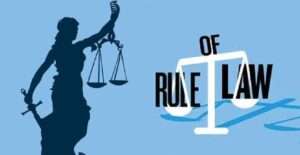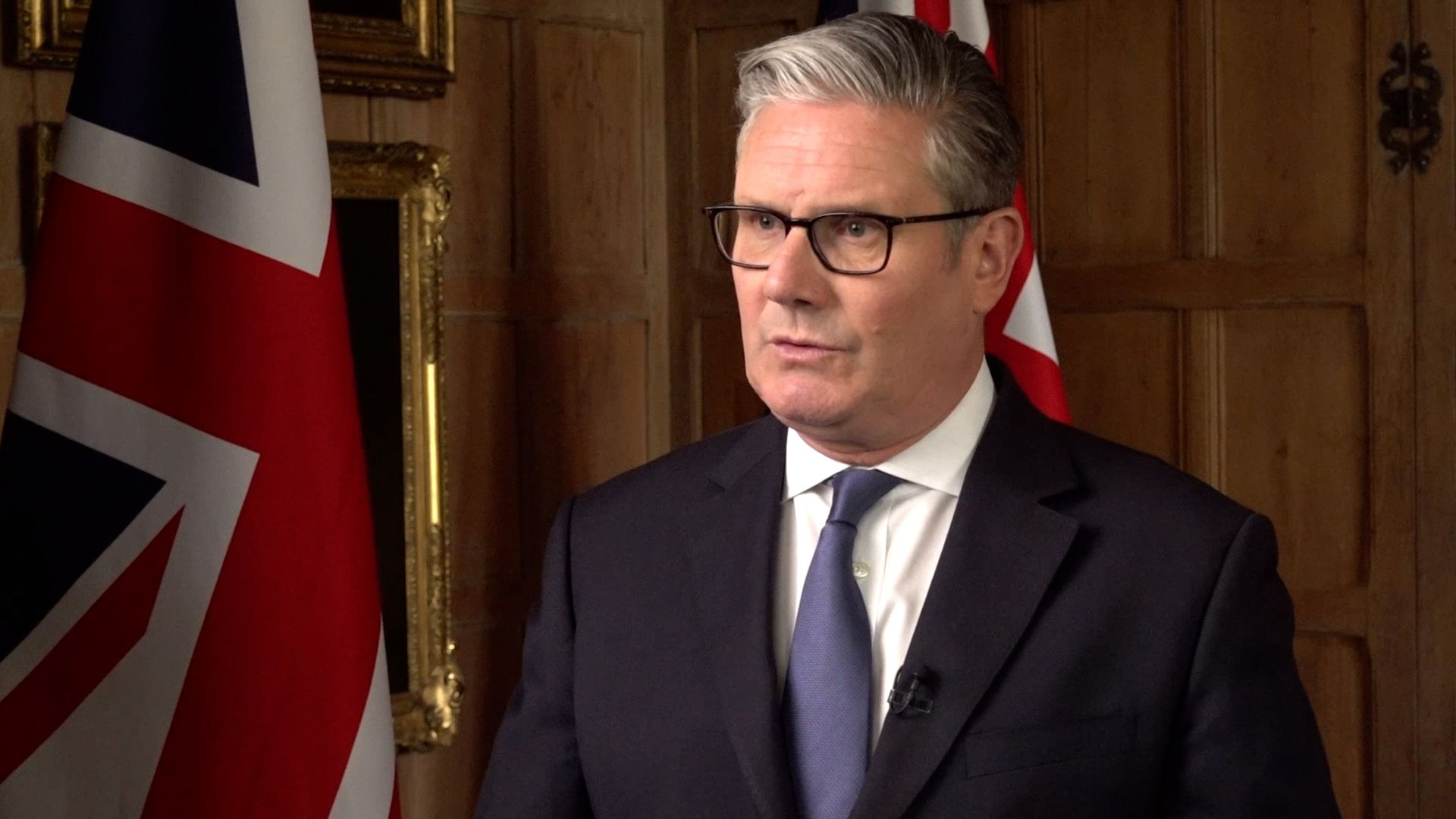 (NA)
(NA) Much has been written (including by me) about how Trump's massive new tariffs will severely damage the US economy, and why they are illegal for a variety of different reasons. But more attention should be paid to how they also threaten the rule of law.
The rule of law is a somewhat fuzzy concept that can mean different things to different people. It's important not to confuse it with justice. But one standard component of it that a wide range of people should be able to agree on is that important legal rules should be clearly stated in advance, and not easily changeable at any one person's whim. That is what differentiates the rule of law from "the rule of men." In addition, they cannot be easily manipulated to reward the ruler's allies and punish his political opponents.
Trump's gargantuan trade war is an egregious violation of these principles. Under the administration's interpretation of the International Emergency Economic Powers Act of 1977 (IEEPA), the president essentially has the power to impose any tariffs, in any amount, on any country, at any time. He can also create exemptions for any given firm, industry, or region of the country, as Trump has already done for various electronics imports.
IEEPA doesn't actually authorize tariffs at all, and invoking it requires the existence "unusual and extraordinary threat" to the US economy or national security, with respect to which the president has declared a "national emergency." But the administration claims the president has unreviewable authority to declare a national emergency whenever he wants, and that even bilateral trade deficits that have existed for decades (and are not actually harmful) constitute an "extraordinary and unusual threat." If so, then virtually anything can qualify as such.
If the president can impose any tariffs he wants, at will, and also reverse them or grant exemptions at will, that is the very opposite of the rule of law. It is essentially the rule of one man. And it's easy to see how such sweeping authority can be readily used to reward friends and cronies, while punishing political opponents. Studies show that firms contributing to the Republican Party were disproportionately likely to receive exemptions from much less extensive tariffs imposed in Trump's first term, while firms contributing to Democratic candidates were more likely to be rejected. Trump's massive "Liberation Day" tariffs are an opportunity to engage in such favoritism on a far greater scale.
In fairness, these dangers are not entirely unique to Trump's tariffs. Many other discretionary exercises of executive power also create legal uncertainty. And political cronyism and favoritism have occurred under administrations of both parties, including those of Barack Obama and Biden. Nor are tariffs the only threat to the rule of law under Trump (far from it).
But the enormous scale of Trump's tariffs is unique in modern times, greatly magnifying the threat they pose to the rule of law. The Tax Foundation estimates that Trump's IEEPA tariffs will impose some $1.4 to 2.2 trillion in tax increases on Americans, over the next decade, and have a massive impact on almost every part of the economy. For as long as the tariffs continue (and they have no enforceable expiration date), that's an incredible amount of power to be completely concentrated in one man's hands. And a nearly unlimited opportunity for favoritism. The danger is exacerbated by the fact that, under, Trump's interpretation of IEEPA, there are no legally binding rules determining how long the tariffs should last, which imports they should target, and whether exemptions can be granted or denied. Trump likes to call himself to a king, and his tariff policy would make him an absolute monarch over US international trade - and the many parts of the economy dependent on it.
To be sure, Congress could potentially curb Trump's authority by enacting new legislation. But that is unlikely to happen, given the requirement of a two-thirds majority in each house to overcome a veto. One of the purposes of judicial review and rules like nondelegation and the major questions doctrine (both of which Trump's IEEPA tariffs run afoul o) is to prevent the executive from usurping authority in ways that are difficult to reverse after the fact.
The threat to the rule of law is an additional reason why courts should not hesitate to strike down Trump's tariff power grab in the various cases brought against it, such as those filed by the Liberty Justice Center and myself on behalf of five small business, the Pacific Legal Foundation, twelve state governments, and others. Much more than economic harm (as important as that is in itself) is at stake in these cases.
The post How Trump's Tariffs Threaten the Rule of Law appeared first on Reason.com.






.jpg.webp?itok=1zl_MpKg)





 Bengali (Bangladesh) ·
Bengali (Bangladesh) ·  English (United States) ·
English (United States) ·